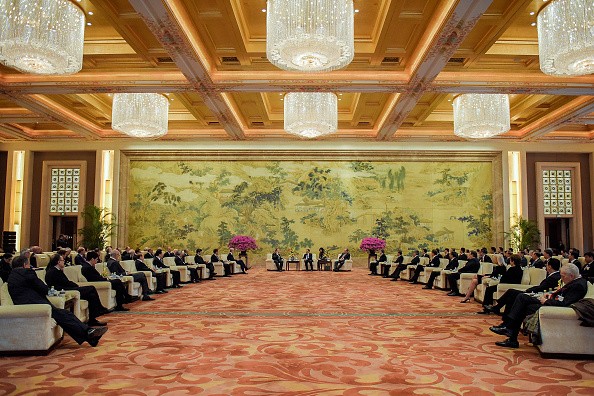At the three-day China Development Forum in Beijing, global elites came together to discuss U.S. President Donald Trump’s growing protectionist agenda and how future gains will be equally shared between nations, Bloomberg reported.
In the recent months, China became some sort of defender for globalization, especially with Trump’s accusations of currency manipulation and a brewing trade war between the U.S. and China.
Some experts, however, are wary of China’s motives, with quite a few seeing China’s efforts in globalization its own brand of mercantilism.
“China has become the U.S. lighting rod for trade with lower-wage countries,” said Charlene Barshefsky, former U.S. Trade Representative and primary negotiation of China’s entry into the World Trade Organization in 2001, during the forum.
“Both the U.S. and China bear very substantial responsibility for an open global market. With respect to China that means a further reform and opening of the Chinese economy and the pullback of discriminatory measures will be essential if globalization is to retain legitimacy,” added Barshefsky.
The China Development Forum was arranged by the Chinese government, a few days after the recently concluded National People’s Congress. Among the top dogs in attendance were Vice Premier Zhang Gaoli, former U.S. officials, academics and scholars, executives from the biggest multi-national corporations, and Nobel Laureates.
Although there is growing resentment towards globalization in different parts of the world, leaders are apprehensive about protectionism.
“The problem is that globalization hasn’t helped everyone and it’s hurt some people,” Tim Cook, CEO of Apple Inc., told delegates last Saturday.
“Countries that are closed and isolate themselves, it’s not good for their people,” Cook said.
The global leaders’ united state against protectionism during the China Development Forum is in stark contrast to what occurred in the G20 finance ministers’ meeting in Baden-Baden, Germany, last Saturday.
During the meeting, attendees failed to sign a pledge against protectionism. Instead, a noncommittal statement on trade was drawn up as a response to the current U.S. government’s call for change in global commerce.



























